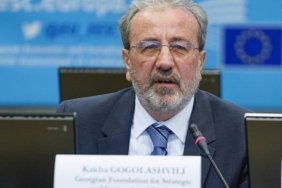Georgia's Minister of Defence, Juansher Burchuladze, on Monday discussed the newly introduced Defence Code, highlighting its role in regulating the legal framework within his body. Burchuladze emphasized the incorporation of international “best practices”, tailored to the “unique circumstances” of Georgia, citing the principle of "voluntary commitment," inspired by Sweden.
"Some groups suggest that mandatory conscription for everyone is imminent, but that's not the case. We've examined the experiences of various nations, such as the Baltic countries, Switzerland, Sweden, Norway, and Finland, seeking models that seamlessly align with our context. The Swedes employ the concept of 'voluntary obligation,' aimed at eliminating mechanisms to evade military service and enhancing conditions for military personnel," stated Burchuladze.The minister underscored that the number of conscripts would be determined by the country's defence requirements, offering “flexible” conditions to those obliged to serve. Burchuladze outlined an ambitious objective: "Our ultimate goal is to establish a substantial reserve. In addition to conversion capabilities, we must foster civil and territorial defence. Approximately 5,000 conscripts will undergo retraining annually, contributing to the development of a robust reserve over time."
Burchuladze also addressed the enhancement of conditions and social guarantees for military personnel. "The conscript salary, which was 60 GEL, will see a substantial increase to 600 GEL from 2025," he noted. Regarding the Defence Code, he clarified that conscripts would exclusively receive retraining from the Ministry of Defence and would be tasked solely with military duties.
Touching on the anti-conscription campaign led by a specific group, Burchuladze assured a swift response to legal challenges. "If any group attempts to devise a new legal mechanism against conscription, we will promptly address it," he asserted.






